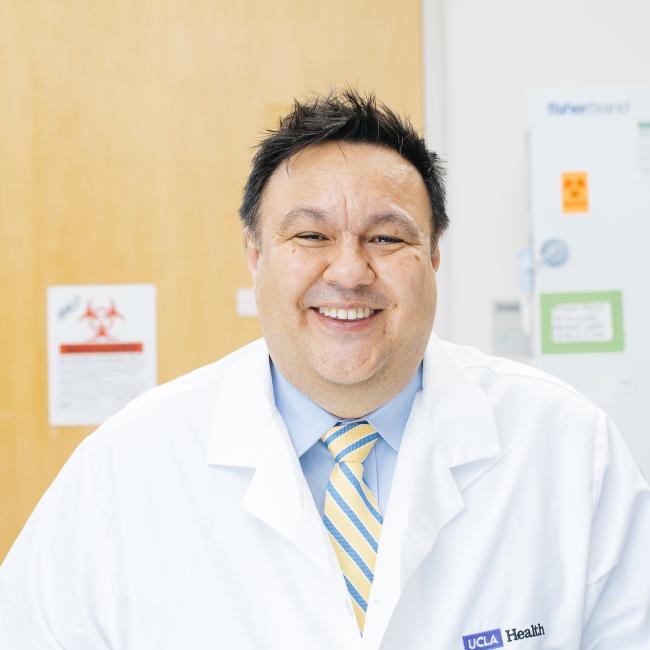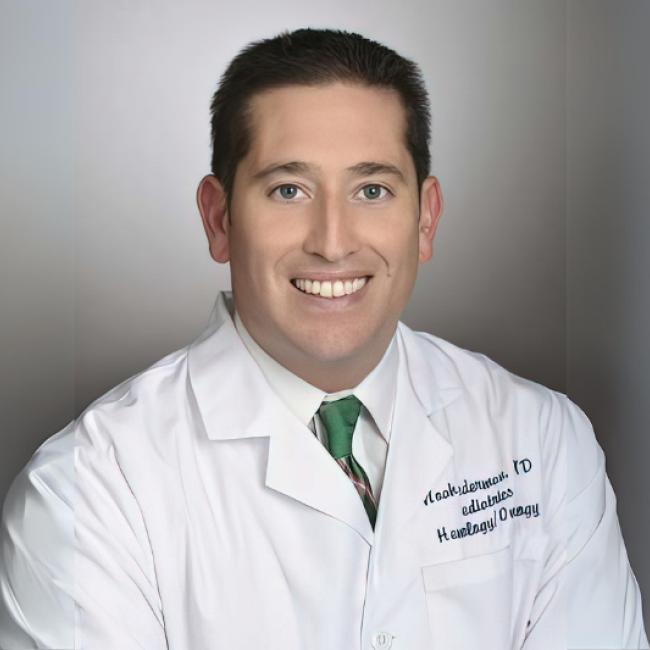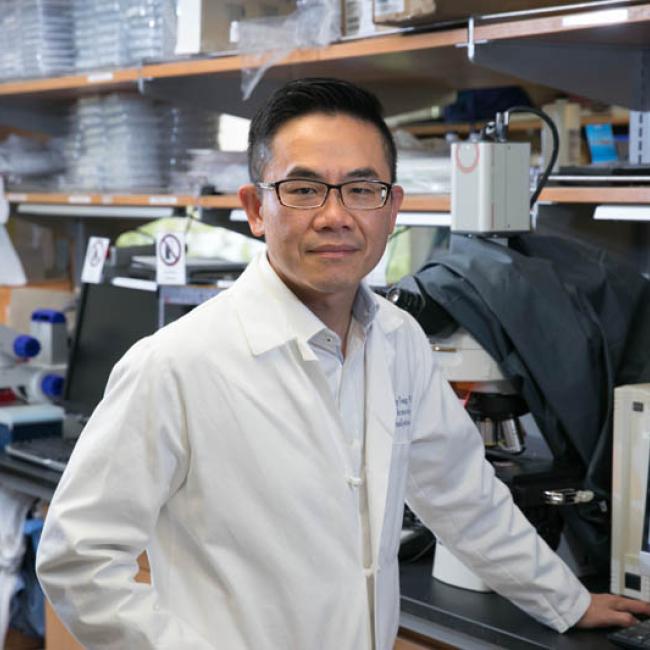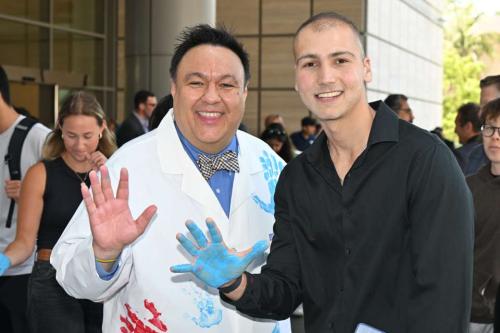
Pediatric cancer researcher receives $400,000 grant for nanotech-based liquid biopsy technologies
Steven J. Jonas, MD, PhD, a physician-scientist at UCLA Mattel Children's Hospital, has been awarded a $400,000 Hyundai Scholar Hope grant from Hyundai Hope on Wheels, a nonprofit organization dedicated to curing childhood cancer. This is Dr. Jonas’ fourth grant from the organization, which has now awarded nearly $2.8 million to support pediatric cancer research at UCLA since 2010.
Dr. Jonas accepted the award during an Aug. 5 ceremony at UCLA Mattel Children’s Hospital attended by leadership from UCLA Health and Hyundai Motor America, along with physicians, researchers, pediatric patients and their families. As part of the event’s signature “handprint ceremony,” young cancer patients painted their hands and left colorful imprints on Dr. Jonas’ white coat and a 2025 Hyundai vehicle, symbolizing hope and progress in the fight against childhood cancer.
Dr. Jonas is a faculty member in the Department of Pediatrics at the David Geffen School of Medicine at UCLA, California NanoSystems Institute, Eli and Edythe Broad Center of Regenerative Medicine and Stem Cell Research at UCLA, and UCLA Health Jonsson Comprehensive Cancer Center. He leads a multidisciplinary research team focused on developing broadly applicable and accessible technologies that support the childhood cancer community.
Dr. Jonas’ newest project seeks to design diagnostic tests that offer a “liquid biopsy” of the underlying cancer by applying nanotechnologies for selectively isolating and analyzing circulating tumor-derived extracellular vesicles that are shed from tumors and enter the bloodstream. These tiny vesicles, described as being nature's version of a lipid nanoparticle shipping container, carry genetic cargoes that can be used to profile a cancer and its behavior, including how it responds to treatment.
“We're trying to fill an unmet need for new diagnostic tools that enable more precise and timely monitoring of a child’s disease status,” said Dr. Jonas. “These capabilities would enable pediatric oncologists to alter their management of a child’s cancer treatment more quickly and decisively.”
Dr. Jonas, who has a unique background that combines nanoscience, materials science and bioengineering, said support from Hyundai Hope on Wheels has been critical to his lab’s progress.
“This support from Hyundai Hope on Wheels allows us to take risks and go after hard problems in childhood cancer, especially in areas like solid tumors, where traditional treatments often fall short,” said Dr. Jonas, who completed his MD-PhD, pediatric residency and pediatric hematology/oncology fellowship training at UCLA.
Precision medicine-based solutions
Pediatric sarcomas are bone and soft tissue tumors that primarily affect adolescents and young adults. These cancers are notoriously difficult to treat, particularly when there is evidence of the disease spreading or progressing, which can drop a patient’s overall survival in half. Dr. Jonas’ lab is working to design diagnostic solutions that improve the ability to profile the cancer and track its response to treatment noninvasively.
“Unlocking new capabilities for monitoring pediatric cancers in this way would offer a powerful precision medicine-based solution for pediatric oncologists that may better guide critical clinical decision-making and potential opportunities for minimizing toxicities associated with existing treatments such as chemotherapy and radiation,” he said.
Patient journeys
That promise of gentler, more precise care resonates deeply with patients and survivors who have experienced the harsh realities of cancer treatment.
Angela Unayan, a pediatric cancer survivor and three-time Hyundai Hope on Wheels event speaker, shared her personal journey through treatment and her aspirations for the future.
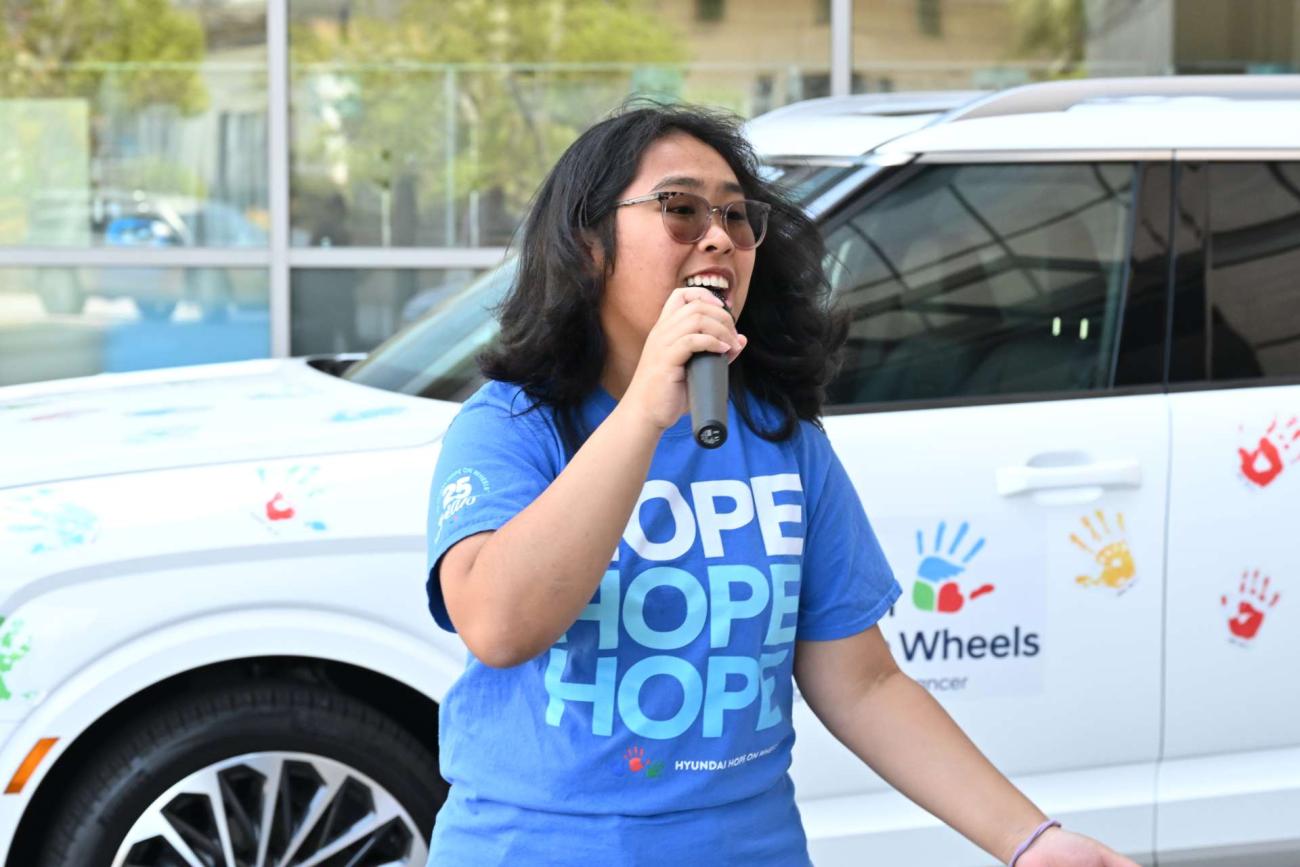
“Now that I’ve been a year out of treatment, it feels like finally getting off the roller coaster and walking out of the gates, knowing that I made it out that day,” said Unayan. “Seeing the incredible research happening at UCLA, I’ve been inspired to pursue a future in pediatric oncology research. My hope is to help create cures that minimize harm; treatments that are effective without causing unnecessary suffering, so kids don’t have to stay in a hospital. Survival is important, but so is the quality of life during and after treatment.”
Sina Sinbari, a 24-year-old Division I volleyball player, also spoke about his cancer journey and the resilience he discovered during his treatment at UCLA.
“There were moments I was lying in a hospital bed thinking, ‘I wish I wasn’t born.’ I was hurting, I was tired and frustrated, but now I know there’s a reason I’m here,” said Sinbari. “UCLA took me in and gave me a chance. Today, I’m in grad school, playing sports and studying business law at UCLA. I want to use my life to give back, to reach my full potential and to make sure no one facing cancer feels alone.”
Dr. Jonas notes that the awarded project represents the next step in a longstanding research partnership with Drs. Hsian-Rong Tseng, Yazhen Zhu, Noah Federman and Sarah Dry. He credits the interdisciplinary research environment at UCLA with cultivating this collaboration that spans bioengineering, molecular pharmacology, pathology and clinical pediatric oncology.
“This is a collaborative place where engineers and physician scientists really come together to move ideas from bench to bedside,” Dr. Jonas said.
Now in its 27th year, Hyundai Hope on Wheels has awarded more than $277 million to pediatric cancer research at 175 institutions nationwide, funding more than 1,300 studies. The organization’s handprint ceremony has become a nationwide symbol of its commitment to eradicating childhood cancer.
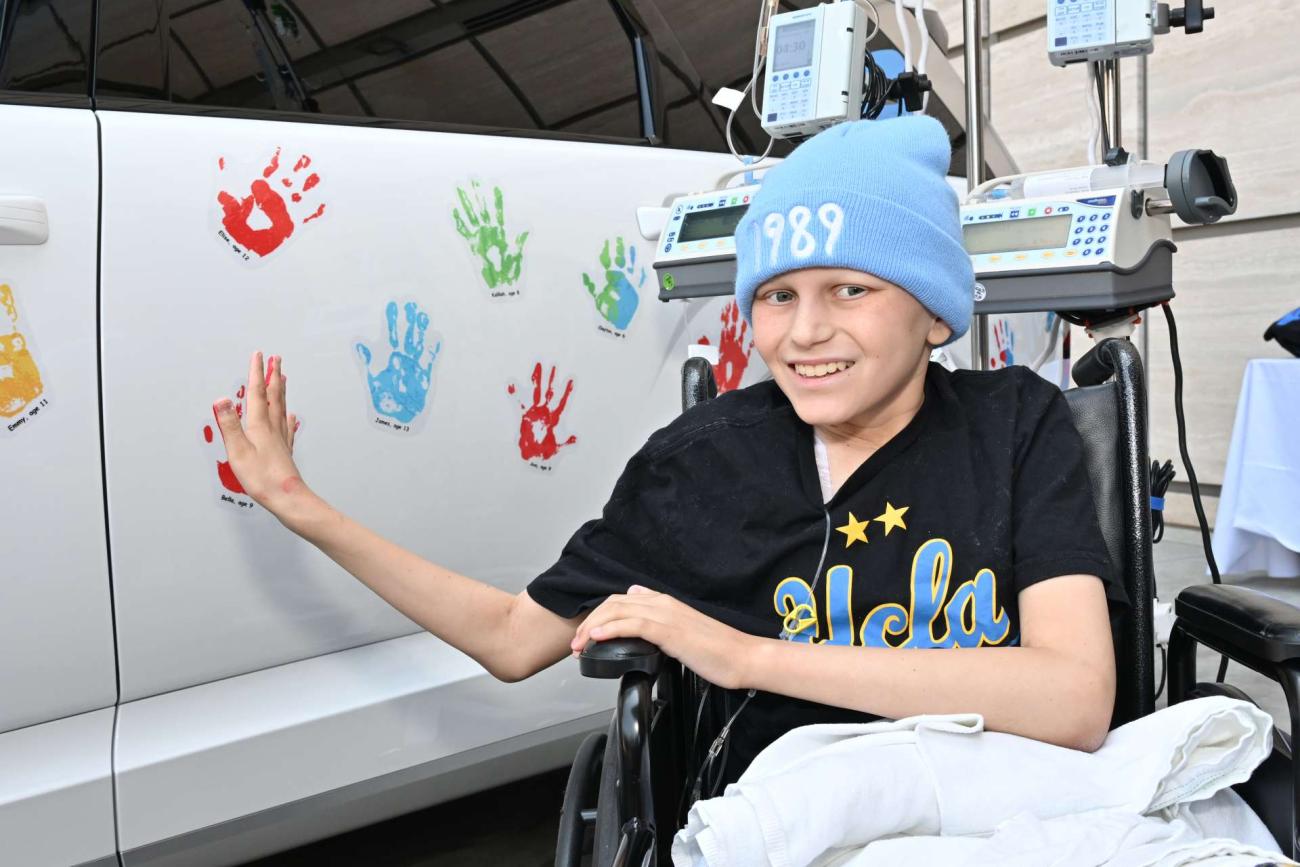
“This generous and consistent support goes beyond the dollars,” Dr. Jonas said. “It gives researchers the freedom to innovate, and it gives patients and families hope that tomorrow’s treatments will be better than today’s.”
